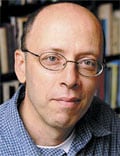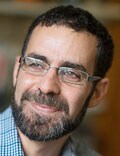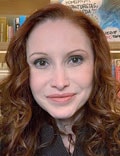En atención a la creciente preocupación sobre la confianza en...
Leer más
Who Are the Real COVID Experts?

During this pandemic, everyone thinks they’re an expert. With little prodding, most people will happily tell you what they think about vaccines, masks, school closures, and the Omicron variant. But when it comes to a disease that only came into being roughly 2 years ago, what exactly qualifies someone as an expert?

Christopher Labos, MD CM, MSc
The answer is not clear-cut because we may actually need many different types of experts to handle the multifaceted and complicated problems arising during this pandemic. We may also need experts who are willing to change their minds and admit that many of these complex questions just don’t have simple answers.
The obvious people to turn to first are those who study viruses, especially coronaviruses, and anyone with experience handling the two previous coronavirus outbreaks of the past 20 years, namely SARS in 2002 and MERS in 2012. But the pandemic has seen a wide array of physicians — for example, Eric Topol, MD (cardiologist and editor-in-chief at Medscape) and Jonathan Howard, MD (neurologist/psychiatrist) — who come from diverse professional backgrounds and who ventured into the field of science communication to explain complex topics to the general public.
And that may be a good thing, according to the experts in expertise that I spoke with.
Specialists vs Experts
Gil Eyal, a professor of sociology at Columbia University and author of The Crisis of Expertise, told me that we have to differentiate between specialists and experts; the two words are not exactly synonymous. Specialists may know a lot about a specific topic, but experts are called upon to provide recommendations in situations where there may be multiple unknowns and for which it may not be possible to give one definitive answer. “An expert is a specialist to whom one can put questions that he is unable to answer,” explained Eyal, quoting the German sociologist Niklas Luhmann.

Gil Eyal
One of the main difficulties of the COVID-19 pandemic is that we faced myriad problems that touched on a variety of issues beyond pure science. Decisions regarding the COVID-19 response have to factor in economic, social, and political concerns as well as scientific issues.
“There’s a lot of uncertainty and too many variables for just one form of specialism to give you an answer,” said Eyal. You need to include many different types of people to address all aspects of our public health response. He draws a parallel between this multidisciplinary approach and a tumor board, where many specialists (oncologists, surgeons, pathologists, radiologists, etc.) come together to discuss how best to treat a patient, each contributing their unique specialist knowledge to the discussion. So too, you need multiple experts with a broad range of expertise to adequately address the many complicated issues at play in the pandemic. Physicians can also serve a double function as both medical practitioners and advocates for public health in multiple areas. “Doctors have a larger social role,” Eyal added, so he was not surprised that they jumped into the debate especially early on when there was so much uncertainty about COVID-19.
Superforecasters
But knowing when you’ve strayed beyond your role as physician-communicator is hard to gauge, especially in real time. Things get more complicated when you start discussing difficult issues we have faced as society, such as, should we close schools, implement lockdowns, impose mask mandates, or vaccinate children? As Alan Levinovitz, associate professor of religious studies at James Madison University, whose research focuses on how religious ideas influence public perception of science, puts it, “Whether or not to open up schools is a very different question than ‘What’s the electron microscopy of the Omicron variant going to look like?’ In the case of the latter question, you would be foolish to go to a non-subject expert. Whereas in the former question, it’s not nearly as clear what the relevant kind of expertise would be.”

Alan Levinovitz
Levinovitz suggests that for some of the really knotty questions, what we might need are superforecasters, a term coined by Philip Tetlock from the University of Pennsylvania. Superforecasters outperform both the public and traditional experts in predicting future events and trends in fields such as politics and economics. But they are not necessarily the best subject-matter specialists.
“They have omnivorous diets when it comes to their sources of information,” says Levinovitz. “So they tend not to be ideologically blinkered. They tend to be widely read, and they are willing to change their minds, depending on what they discover.” It seems that the best COVID “experts” may not in fact be the people who have all the answers but the people who are willing to say “I don’t know” and change their minds over time. After all, many experts were initially skeptical of President Biden’s announcement of giving out boosters to all adults back in the fall of 2021. But emerging data and the reality of the Omicron variant have made the need for booster shots abundantly clear.
Most doctors weighing in on COVID-19 on social media and elsewhere are not advising policymakers but are trying to communicate science to the public in a digestible and easy-to-understand way. They speak out to encourage people to get vaccinated or to wear masks in public or to combat scientific misinformation.
This requires a skill set that has more to do with rhetoric and an understanding of how people process information than it does about specific knowledge. It also requires an understanding that what you say might be as important as how you say it. And while most physicians have been largely in step with and tried to support the scientific consensus, there have been notable examples of physicians who have been voices of dissent and have opposed, for example, vaccination in children or mask-wearing to the point of sometimes claiming that masks could harm the wearer.
The Role of Contrarians
The unfortunate truth is that over the course of the pandemic, some physicians and experts have disagreed, sometimes very vocally, about the severity of the virus, the benefits of masks, and the need for lockdowns. Early on, when data were scarce and there were multiple unknowns, it was not surprising to have differences of opinion. But with time, divergent opinions are supposed to converge into some sort of consensus. However, some individuals have maintained, and even doubled down on, points of view that are not shared by most other experts.
There is, of course, value in having a dissenting opinion. “Contrarians are extremely important,” says Levinovitz. “We would be worse off in every discipline without them. They are instantly skeptical of institutional claims or truths that are embraced by the majority. Those people are wonderful to have around because without them, it is hard for large, lumbering groups to be aware of their own errors.” But he warns, “Contrarianism itself can become an ideology that leads you into reflexive dismissals of whatever the current seeming consensus happens to be.” In short, if you have a hammer, everything starts to look like a nail.

Natalia Pasternak
The issue may also be that the fundamentals of epidemiology and critical thinking do not, on average, make up the core of many medical school curricula. Natalia Pasternak is a microbiologist and president of the Question of Science Institute in Brazil, which promotes scientific and critical thinking and the use of scientific evidence in public policies. She saw many people, including physicians, embrace invalid and discredited scientific theories during the pandemic and attributes much of it to the fact that many practitioners are ill equipped to understand basic concepts of evolutionary biology, genetics, and even vaccinology.
Some of the anti-scientific claims she came across were patently absurd, such as the president of Brazil telling people that the COVID-19 vaccines would turn them into crocodiles. But others, such as believing that hydroxychloroquine could treat COVID-19 long after the evidence suggested it couldn’t, probably stemmed from the fact that most people, including physicians, do not understand the scientific method. Why some physicians maintain essentially anti-science points of view long after it is justifiable to do so is unclear.
Patient vs Population
Pasternak points out that physicians are usually trained to put their patients first. “They are very focused on the patient,” explains Pasternak. “They are not trained as epidemiologists are to think about the population and to think about statistics.” As an example, a physician might worry about the risk for myocarditis post vaccination, having seen cases of very severe myocarditis leading to heart failure, even though the risk for myocarditis post vaccination is very low and generally results only in mild cases when you review the epidemiologic data. ” For a doctor who actually sees patients on a daily basis,” explains Pasternak, “I think it’s very difficult to separate and to really think about the outcomes for the population if the one person that you’re attending to happens to have a particular vaccine side effect. It happens. It’s very rare, but it happens.”
The solution may be a better grounding in epidemiology, statistics, and public health so that even physicians in clinical practice can be better consumers of medical information. But Pasternak says that the problem for many may speak to a more basic shortcoming in the understanding of what evidence-based medicine actually means. ” It’s very important that we rethink the way we teach scientific method,” she says, because it’s going to teach people to think more critically.
There may in fact be multiple issues that lead good physicians astray. Some may be overconfident in their ability to parse scientific information, others may believe that they are advocating for their patients and protecting them from side effects that are actually extremely rare from the population perspective, and no doubt a few may be so ideologically wedded to their contrarian position that they are not able to admit that they were wrong or change their minds.
And for some COVID topics, we may be looking for clear answers where there are none to be had. “If you are scared of something, ambiguity is your enemy and certainty is your friend,” explains Levinovitz. “The desire for certainty in a landscape of conflicting claims can also drive people to adopt certainties they shouldn’t.” After all, it is never easy to say “I don’t know.”
In the end, physicians shouldn’t be afraid to speak about COVID publicly, if only to advocate for the public health measures we need to put in place to prevent an overwhelmed healthcare system from collapsing. There is a clear benefit to having a diversity of voices to demonstrate that strong scientific consensus exists for things like vaccination. Much as there was a false narrative that scientists were split over issues like climate change, having a multiplicity of voices would help dispel the notion that doctors are spilt on whether vaccines are safe and effective.
Ultimately, it depends on physicians to understand their own limitations and what they are prepared to speak on. Not everyone needs to express an opinion on every issue. The virologists can speak to the nature of the virus, the epidemiologists can speak to the quality of good and bad studies, the ICU doctors can provide first-hand accounts of an overwhelmed hospital system, and the pediatricians can attest to the impact of COVID-19 on children. But we can all be part of Team Science.
Christopher Labos is a cardiologist with a degree in epidemiology. He spends most of his time doing things that he doesn’t get paid for, like research, teaching, podcasting, and writing for the newspaper. Occasionally, he finds time to practice as a cardiologist so he can pay his rent. He realizes that half of his research findings will be disproved in 5 years; he just doesn’t know which half. He is a regular contributor to the Montreal Gazette, CJAD radio, and CTV television in Montreal. To date, no one has recognized him on the street or asked for his autograph.
https://www.medscape.com/viewarticle/967067?src=soc_fb_220201_mscpedt_news_tho_expert&faf=1#vp_1
Créditos: Comité científico Covid




